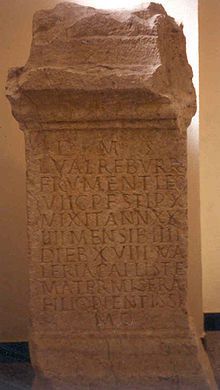During the reign of Emperor Domitian (81-96 CE) Roman secret police called frumentarii was established. It consisted of non-commissioned officers and centurions, previously responsible for supplying individual legions with the grain (frumentum). Mobilized from various units and at the Castra Peregrinorum on the Caelius hill in Rome, they were to carry out special tasks. They were commanded by princeps peregrinorum, a senior centurion reporting directly to the emperor.
Frumentarii initially collected taxes and relayed messages throughout the Empire. They were also responsible for controlling and regulating grain deliveries to the capital. Their role, however, evolved during the reign of Hadrian (117-138 CE), who abandoned his policy of expansion and focused on internal stabilization – for this purpose frumenatrii took over the role of the secret police.
About two hundred frumentarii served in Rome at the same time, who, contrary to current standards and regulations, did not hide and lived completely openly. They even wore special uniforms that defined their affiliation. Initially, in the 2nd century CE, they were spies at the imperial court to protect the emperor from possible conspiracies. At the turn of the 2nd and 3rd century CE, they watched the actions of high-ranking military men, senators and Christians. Naturally, in the meantime, they dealt with collecting taxes and arrests, which during the crisis of the third century CE have reached their apogee. At that time, clear contempt for these functionaries appeared in Roman society.
Due to the abuses committed by the frumenatrii, Emperor Diocletian (284-305 CE) dissolved this unit and replaced it with the so-called agentes in rebus (“general agents”). The change was that they were recruited from civilians, not the military. Thus, the number of units increased – from 200 to 1000. The reconstruction of the office did not bring much change, as there were still abuses, and the unit itself agentes in rebus operated in the Byzantine Empire until the 8th century.







